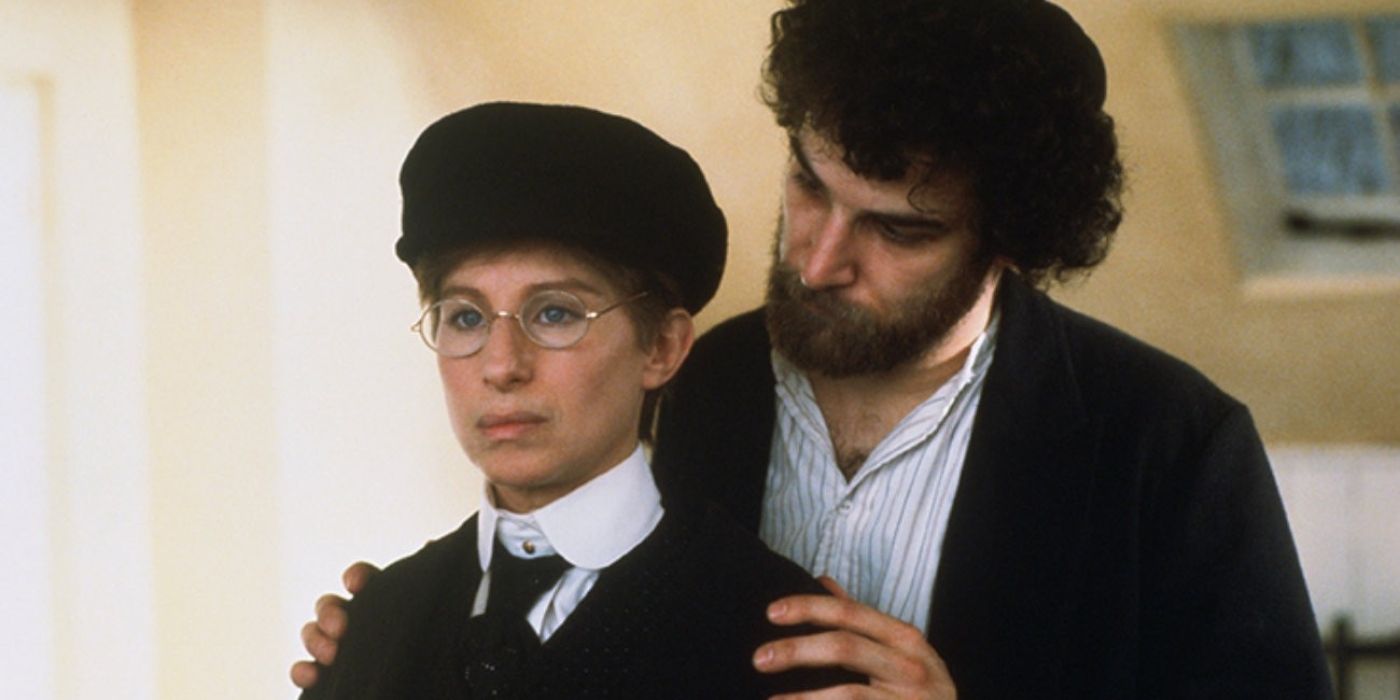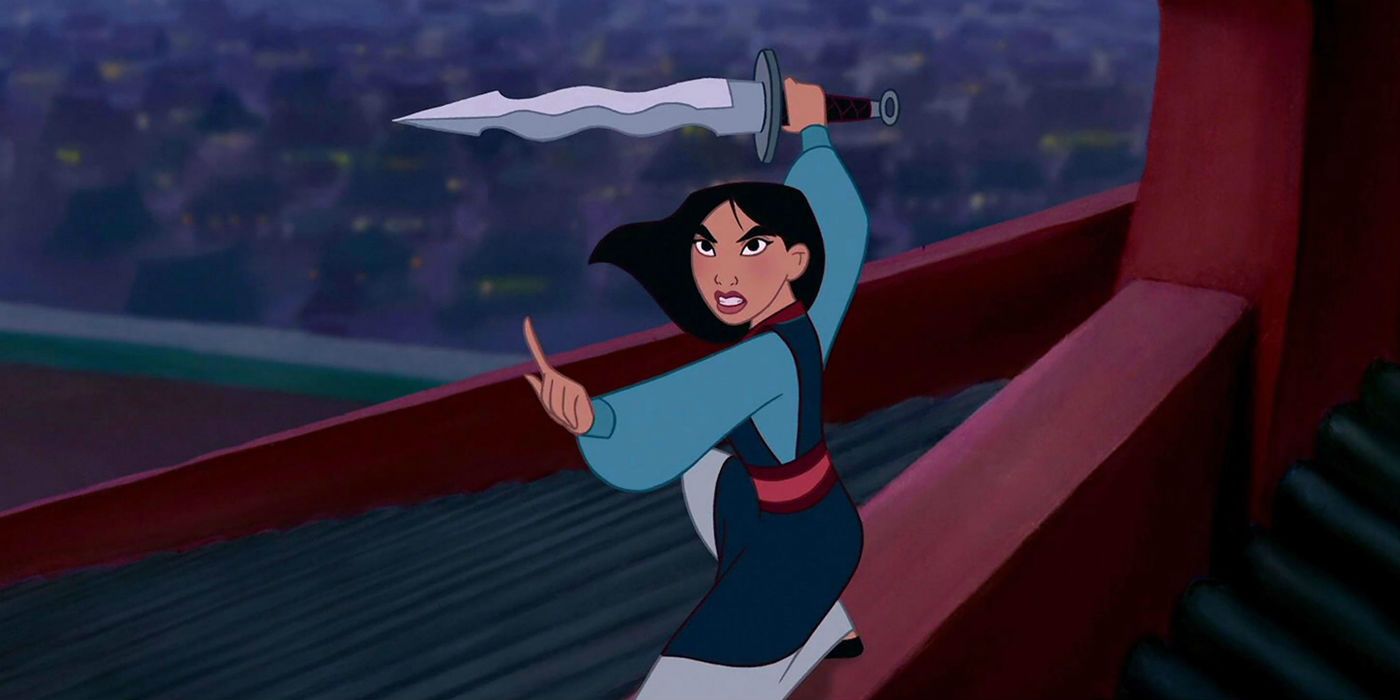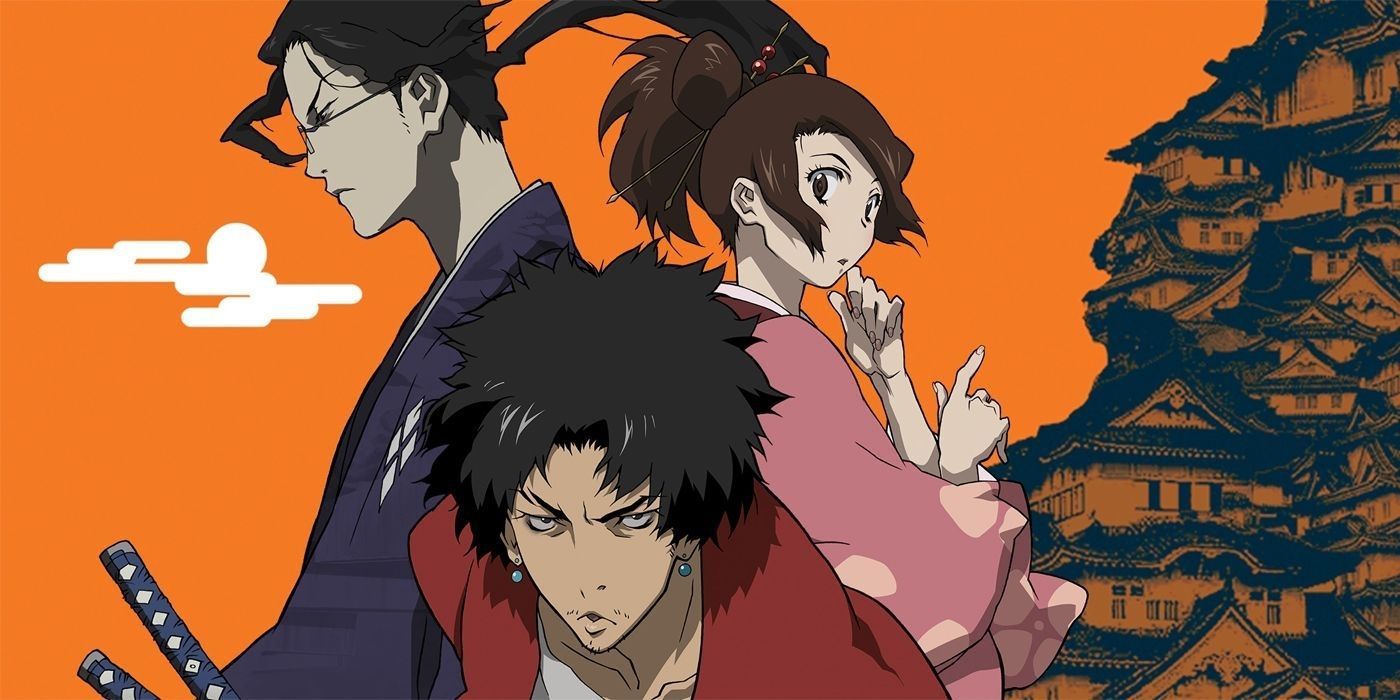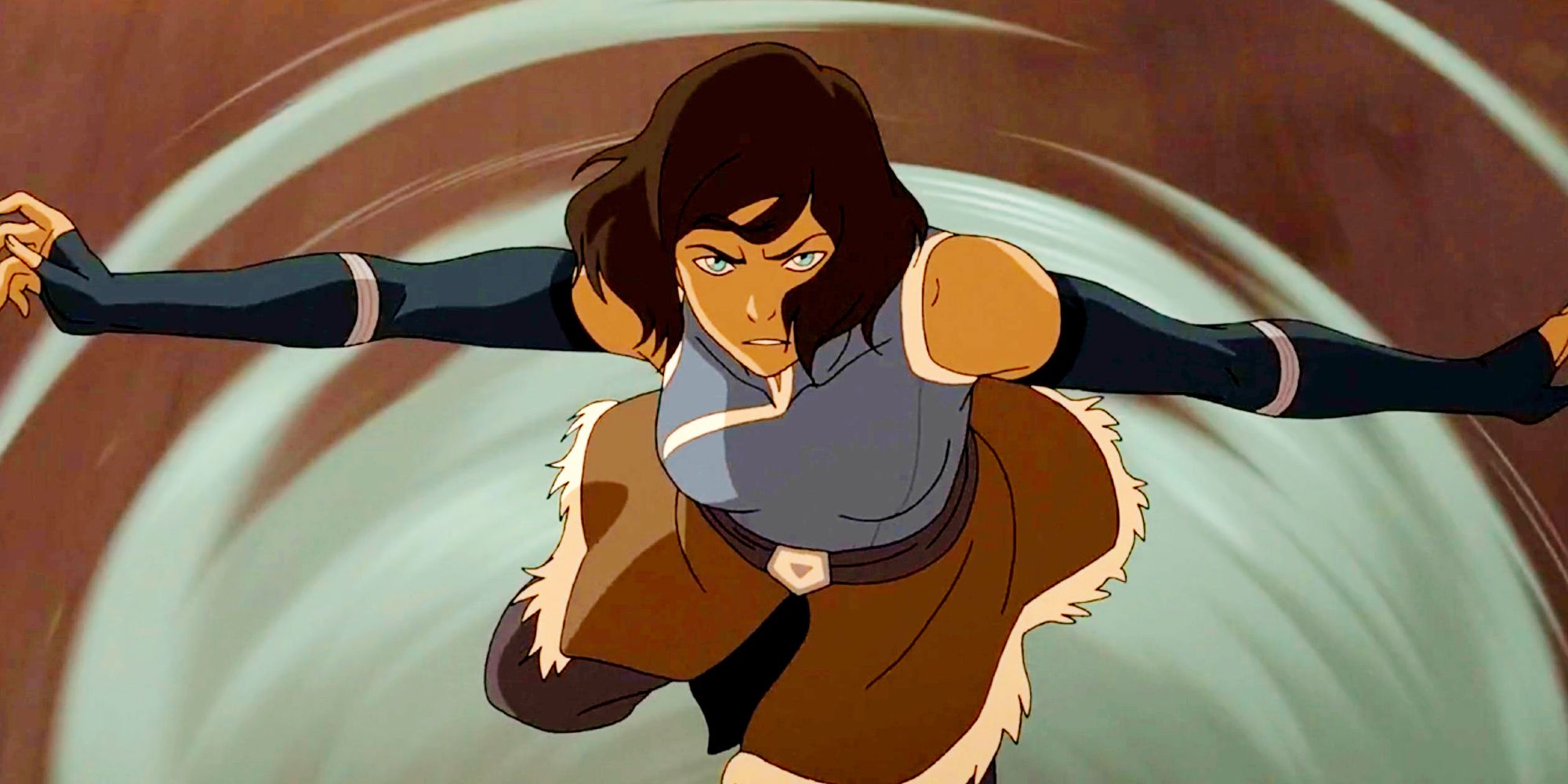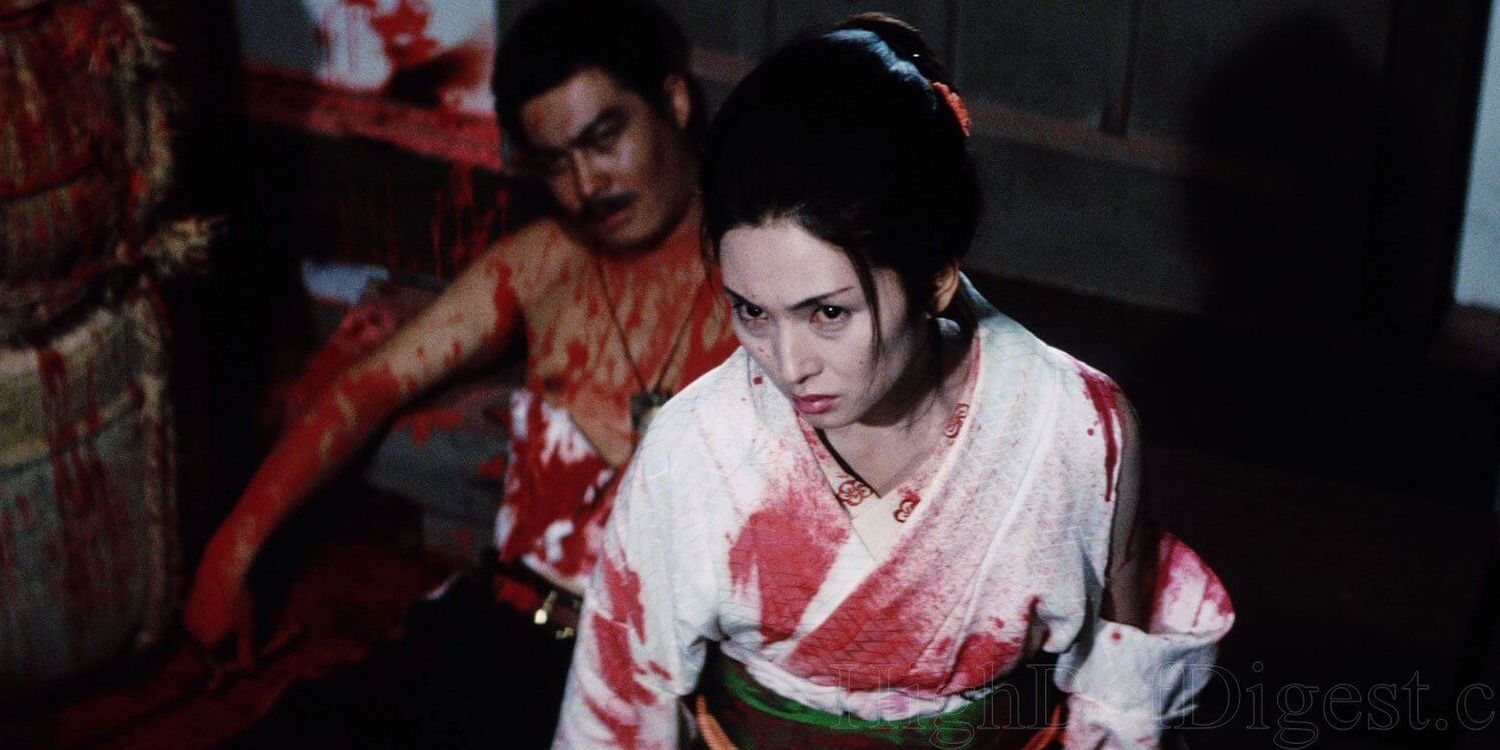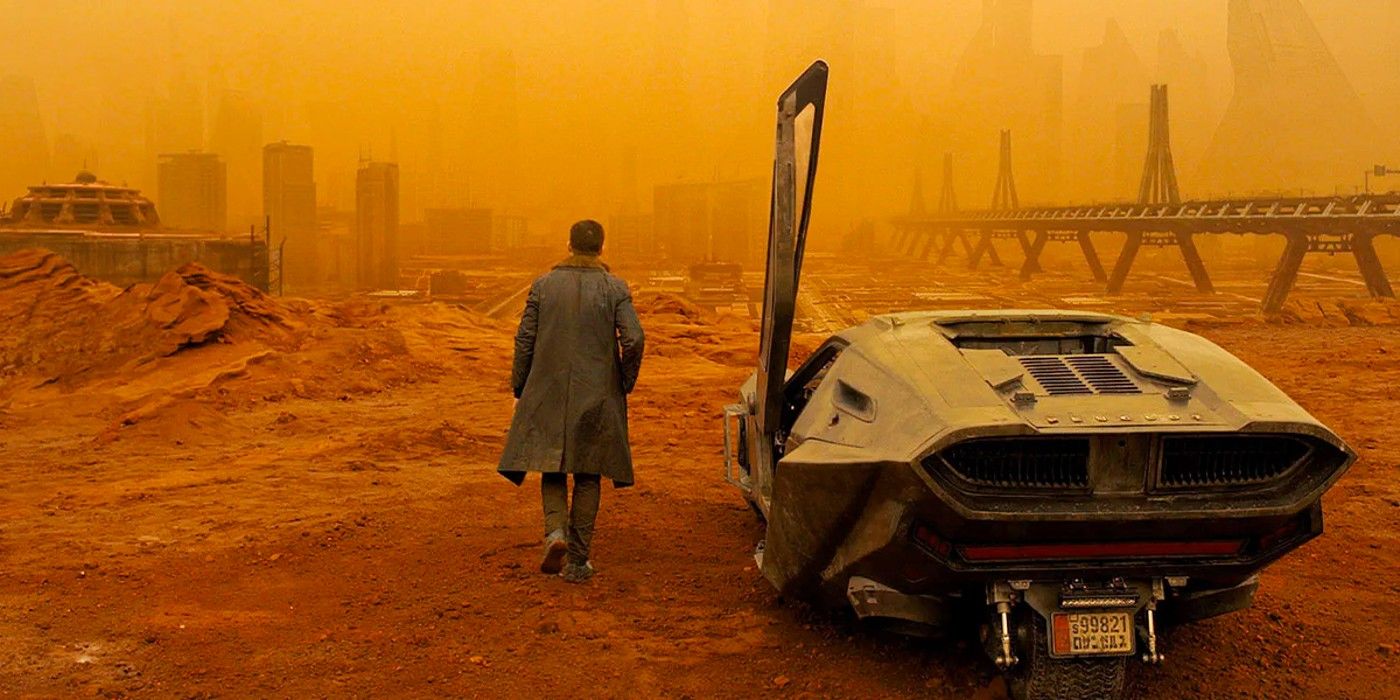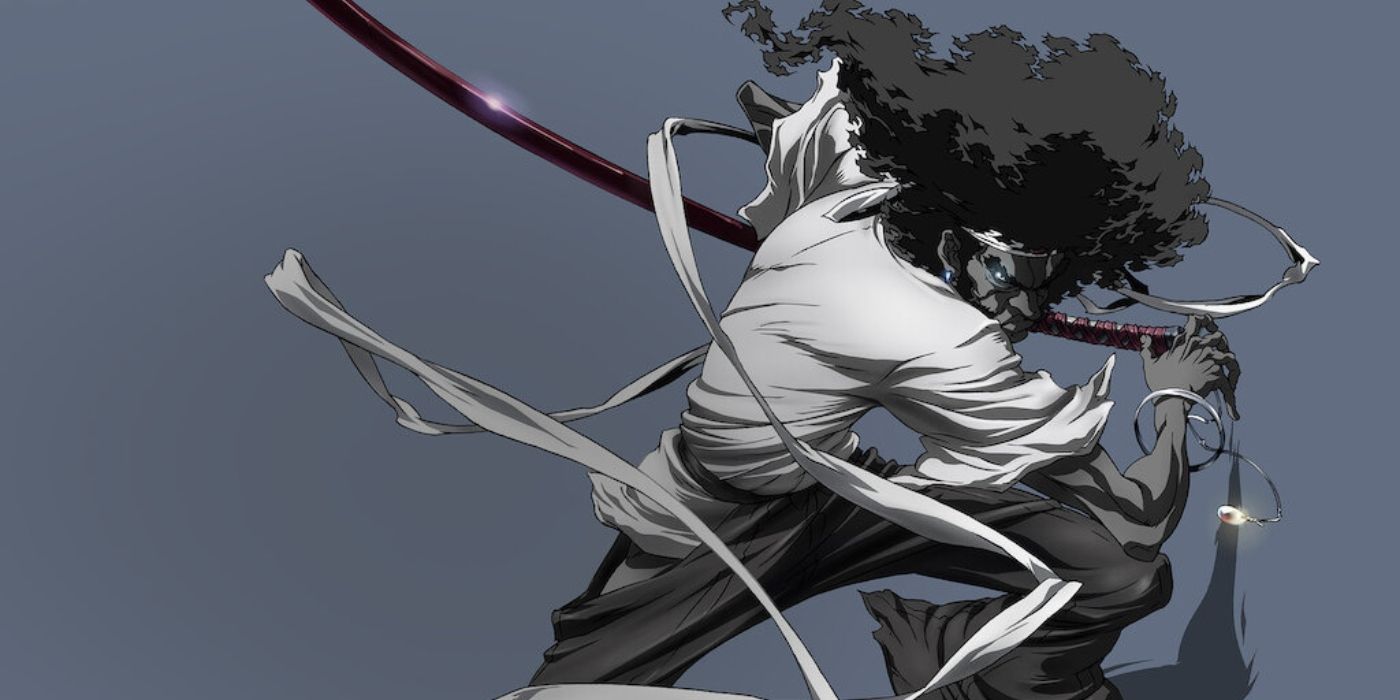Summary
- Blue Eye Samurai draws inspiration from a variety of films and shows, including Yentl, Kill Bill, Mulan, Samurai Champloo, The Legend of Korra, Cowboy Bebop, Lady Snowblood, Blade Runner 2049, Afro Samurai, and Arcane.
- These works share themes of revenge, gender identity, discrimination, and the pursuit of freedom, which resonate with Blue Eye Samurai’s story.
- The artistic styles, character development, and action sequences in these films and shows parallel the unique blend of genres and visual storytelling that make Blue Eye Samurai stand out in the world of animation and modern television.
While waiting for the highly anticipated second season of Blue Eye Samurai, looking into film and television that served as inspiration for the show is a great way to discover new content or scratch the same itch as the series. The show is a unique blend of genres, writing, and visual storytelling that makes it stand out in the field of animation and modern television. Ending on a massive cliffhanger for each of the characters, season 2 can’t come soon enough, but other great content can bridge the gap in the meantime.
Blue Eye Samurai follows the tale of Mizu (Maya Erskine), a samurai who disguises herself as a man to complete her quest for revenge. It takes place in Edo-era Japan and explores the discrimination Mizu faces because of her mixed-race heritage. She is half-white half-Japanese, which makes her the target of violence and sets her on the path to kill the four white men who were living in Japan when she was born. She is unmatched in terms of skill and unrelenting desire for revenge, and her story is elevated by the action sequences and beautiful animation of the series.
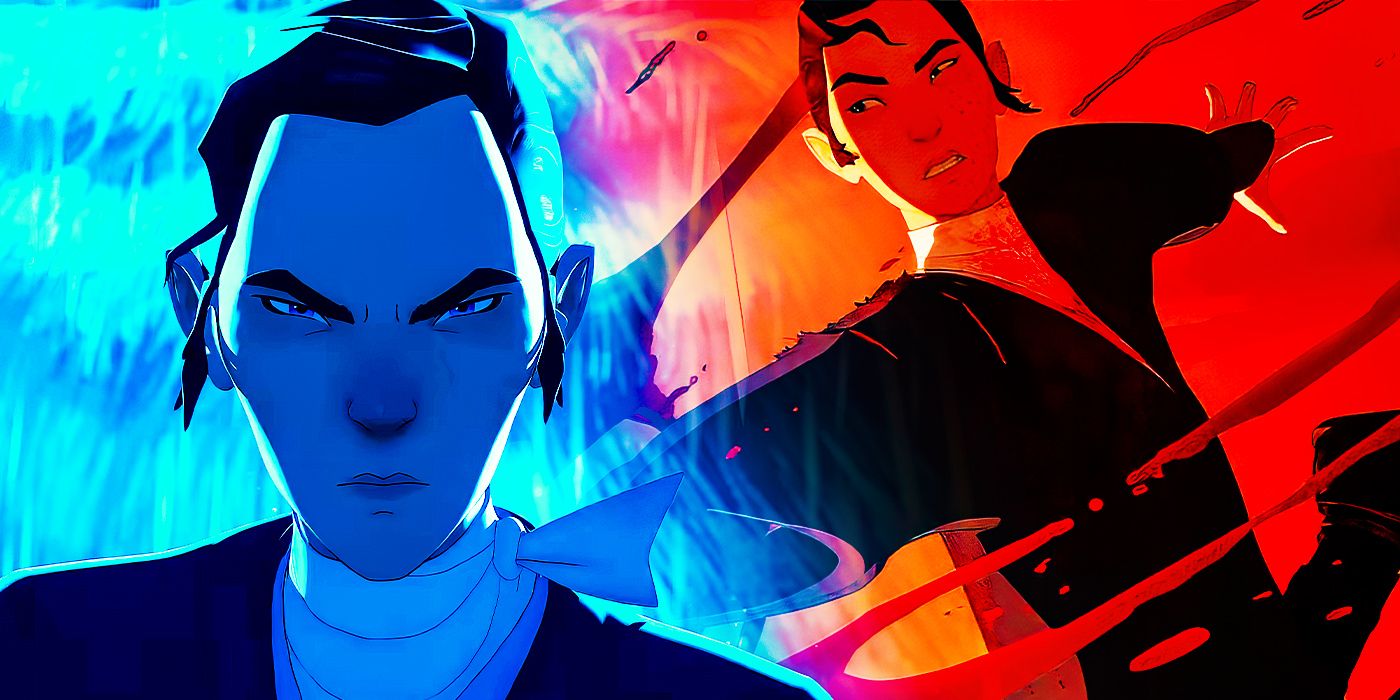
Related
Blue Eye Samurai Ending Explained: Where Is Mizu Going?
Mizu’s revenge is not yet complete as she heads out to unchartered territories after the stunning season finale of Netflix’s Blue Eye Samurai.
10 Yentl (1983)
Directed by Barbra Streisand
Creators Amber Noizumi and Michael Green have confirmed that one of the biggest influences on Mizu’s character and the story was the film Yentl starring Barbra Streisand. In the film, Yentl assumes the identity of a man so that she can continue her education in the wake of her father’s death. Though she falls in love with Avigdor (Mandy Patinkin), she ultimately chooses herself and to continue to learn about the world rather than be a wife.
Yentl is not fueled by the same hatred as Mizu, but her past and need to have a life outside the expectations for women at the time is parallel to Mizu’s journey. The love that each woman feels for the people in their life does not measure up to their desire for freedom. The tone of Yentl differs greatly from the gore-filled style of Blue Eye Samurai but the character development ties the film and show together.
9 Kill Bill: Volume 1 (2003) & Kill Bill: Volume 2 (2004)
Directed by Quentin Tarantino
Kill Bill
- Release Date
- October 10, 2003
- Cast
- David Carradine , Michael Madsen , Uma Thurman , Daryl Hannah , Lucy Liu , Vivica A. Fox
- Rating
- R
- Runtime
- 111 minutes
- Budget
- $30 million
- Franchise(s)
- Kill Bill
The Bride (Uma Thurman) is unapologetically tied to her femininity, unlike Mizu, but makes a fearsome warrior in the same way. In the Kill Bill franchise, Quentin Tarantino was deeply influenced by samurai cinema and martial arts films, from which Blue Eye Samurai also owes much of its stylization. Both the Bride and Mizu are on a quest for revenge, and take on armies singlehandedly regardless of the odds stacked against them. Though the Bride doesn’t face the same discrimination that Mizu does, she still has her own tragic backstory.
8 Mulan (1998)
Directed by Tony Bancroft & Barry Cook
Taking place during the Northern Wei dynasty in China, Mulan is about a woman who disguises herself as a man to join the imperial army and save her father from having to fight. Mulan is considered the most heroic Disney princess and for good reason, she doesn’t let society’s prejudice against women stop her from turning the tide of the war, and her decisions carry just as much weight as the men around her.
A key difference between Mulan and Mizu is that Mulan is driven by a deep familial love, but plagued by a sense of otherness because she isn’t content to follow the traditional female path. Mizu is forced onto her path because of the way that she is ostracized by others. However, seeing both of them work tirelessly against the odds stacked against them reflects the tonal similarities between the characters.
7 Samurai Champloo (2004 – 2005)
Directed by Shinichirō Watanabe
Also set in Edo period Japan, Samurai Champloo parallels Blue Eye Samurai in many ways because of its focus on the art of swordsmanship as well as the portrayal of different peoples and lifestyles of the time. Proving extremely successful in both Japanese and Western markets, Samurai Champloo blended the traditional with the modern seamlessly, and frequently preached self-acceptance in its story themes. The importance of illustrating the diversity of experience in a historic period is a similarity to Blue Eye Samurai, but Samurai Champloo is not quite as dark and includes more gags than the former.
6 The Legend Of Korra (2012 – 2014)
Directed by Ian Graham, Colin Heck, Joaquim Dos Santos, Ki Hyun Ryu, Melchior Zwyer, & Michael Dante DiMartino
The Legend of Korra
- Release Date
- April 14, 2012
- Seasons
- 4
- Story By
- Bryan Konietzko
- Writers
- michael dante dimartino , bryan konietzko
- Directors
- Joaquim Dos Santos
The sequel series to the Nickelodeon show Avatar: The Last Airbender, The Legend of Korra chronicles the adventures of the new avatar, Korra (Janet Varney), as she takes up the mantle from Aang, the previous avatar. Though it’s a children’s show, The Legend of Korra deals with serious themes of death, loss, and depression. Korra is a hero who is put to the test time and again and struggles with what her role is as the avatar.
The series was also revolutionary because it included an LGBTQ+ relationship between Korra and Asami (Seychelle Gabriel). Like Blue Eye Samurai, moral questions are at the forefront of the show’s story, as is the determination of what makes a true hero. Though strength and skill are on full display in both shows, it takes much more for their protagonists to become worthy of the title of hero, and to live up to their loved ones’ expectations.
5 Cowboy Bebop (1998 – 1999)
Directed by Shinichirō Watanabe
Cowboy Bebop (1998)
- Release Date
- April 3, 1998
- Cast
- Koichi Yamadera , Steve Blum , Megumi Hayashibara , Wendee Lee , Unshô Ishizuka , Beau Billingslea , Aoi Tada , Melissa Fahn
- Rating
- TV-14
- Seasons
- 2
- Writers
- Keiko Nobumoto , Shinichirô Watanabe
- Network
- Adult Swim
- Franchise(s)
- Cowboy Bebop
- Directors
- Shinichirô Watanabe
Also under the creative eye of Shinichirō Watanabe, who was involved with Samurai Champloo, Cowboy Bebop is one of the most synonymous neo-noir Western animes of all time. The visual style and score of the series have inspired countless pieces of media since its release, as has the nihilistic, violent, and exceptionally talented protagonist Spike Spiegel. It remains to be seen if Blue Eye Samurai will stand the test of time as Yuwell as Cowboy Bebop, but it’s certainly carrying on the tradition of fantastic adult animation with a distinct and gorgeous aesthetic.
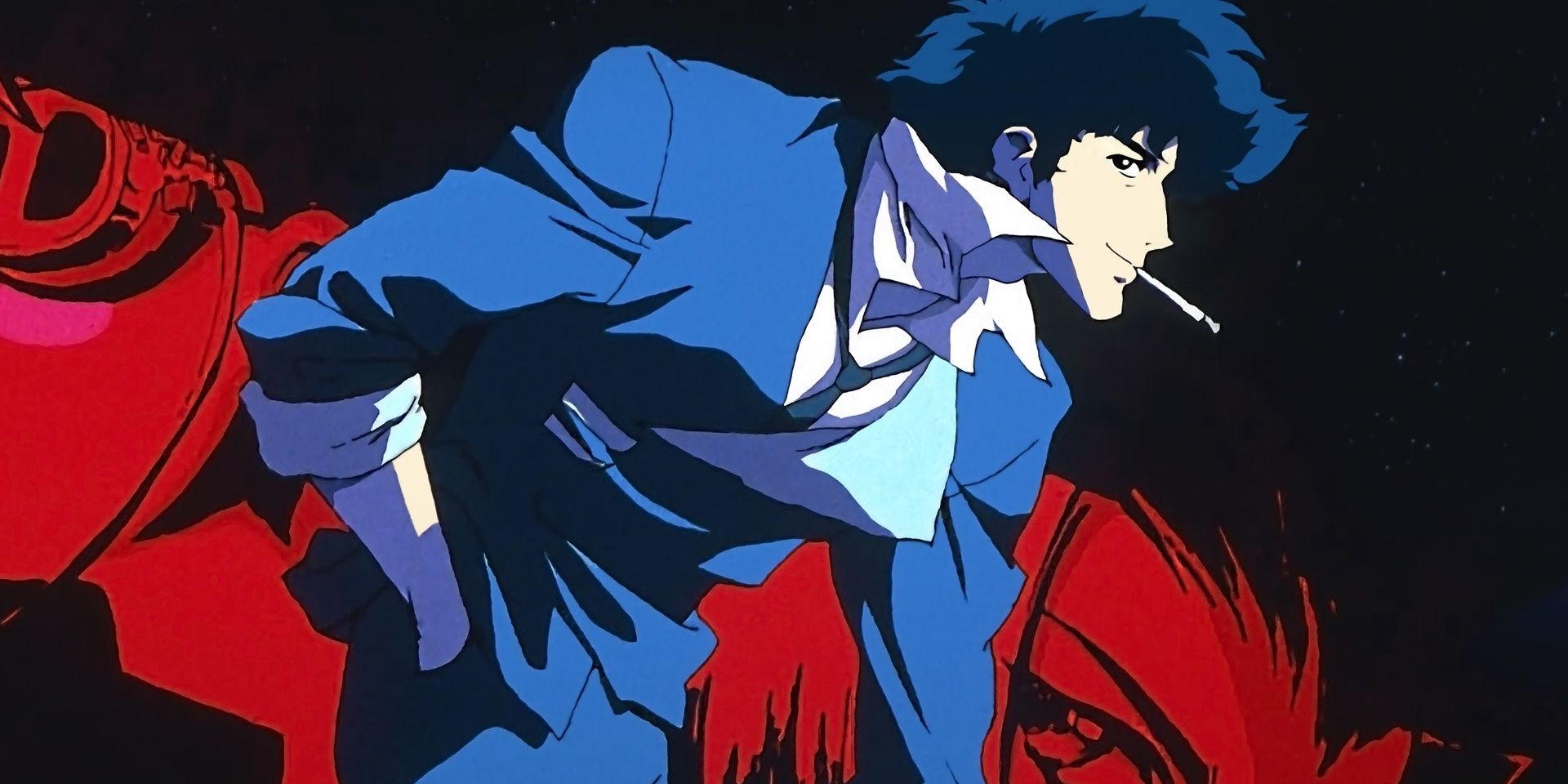
Related
15 Best Anime Series Every Cowboy Bebop Fan Needs to Watch
Cowboy Bebop is a fan-favorite anime for good reason, but, for those who have already watched it multiple times, there are these other amazing series.
4 Lady Snowblood (1973)
Directed by Toshiya Fujita
Yuki Kashima AKA Lady Snowblood (Meiko Kaji) has vengeance on her mind just as much as Mizu. Also alone in the world on a desperate, bloody path of revenge at any cost, Lady Snowblood’s journey mirrors that of Blue Eye Samurai‘s Mizu, as well as the way the story is told. Jumping between the past and the present to slowly reveal Yuki’s past and what fuels her fire is mimicked by Blue Eye Samurai. In both, graphic violence is prevalent, but the action sequences are so beautifully choreographed it’s impossible not to look away.
3 Blade Runner 2049 (2017)
Directed by Denis Villeneuve
Blade Runner 2049
- Release Date
- October 6, 2017
- Cast
- Ryan Gosling , Harrison Ford , Jared Leto , Ana De Armas , Robin Wright , Lennie James , Dave Bautista , Carla Juri , Hiam Abbass , Barkhad Abdi , David Dastmalchian , Mackenzie Davis , Sylvia Hoeks
- Rating
- R
- Writers
- Michael Green , Hampton Fancher
- Budget
- $150 Million
- Studio(s)
- Warner Bros. Pictures
- Distributor(s)
- Warner Bros. Pictures
The recent sequel to 1982’s Blade Runner updates the exploration into the ethics of human replicants and utilizes grand set pieces to capture the scale of the story. Blade Runner 2049 takes place in a far future, but it’s very similar to the distant past of Blue Eye Samurai. Both have unfamiliar settings and cultural ideals, but they are more reflective of modern society than one might believe and are the ideal backdrop for metaphors about the current cultural climate. Though the protagonists of each have vastly different lives, they still struggle with the essential question of whether they belong.
2 Afro Samurai (2007)
Directed by Fuminori Kizaki
Afro Samurai combines elements of both sci-fi and historical fiction in its spellbinding blend of action and vengeance. The protagonist, Afro (Samuel L. Jackson), sets out on a lifelong journey to avenge the death of his father at the hands of a rival samurai master. As he rises among the ranks of the greatest fighters in the world, Afro prepares himself for his fight with his father’s killer and becomes a fearsome warrior. Like Blue Eye Samurai, the series strongly focuses on vengeance and familial ties and incorporates innovative design in its animation style, making the show unforgettable.
1 Arcane (2021 – )
Directed by Pascal Charrue & Arnaud Delord
Arcane
- Release Date
- November 6, 2021
- Cast
- Hailee Steinfeld , Ella Purnell , Kevin Alejandro , Katie Leung , jason spisak , Toks Olagundoye , Harry Lloyd , JB Blanc , Reed Shannon , Mick Wingert
- Rating
- TV-14
- Seasons
- 1
- Writers
- Christian Linke , Alex Yee
- Directors
- Pascal Charrue , Arnaud Delord
Based on the video game franchise, League of Legends, Arcane fleshes out the world of the game and delves into serious discussions of class inequality and violence. The two main characters, Vi (Hailee Steinfeld) and Jinx (Ella Purnell) are sisters who are separated, only to find themselves turned against each other in a cruel and terrible power struggle. Finding themselves at odds, the sisters grapple with what the right thing to do is, and what side they should be on. Both the sister and Mizu are faced with horrible choices and are forced to become weapons to protect themselves.
Blue Eye Samurai
- Release Date
- November 3, 2023
- Rating
- TV-MA
- Seasons
- 1
- Writers
- Michael Green , Amber Noizumi
- Directors
- Jane Wu
- Showrunner
- Michael Green , Amber Noizumi




